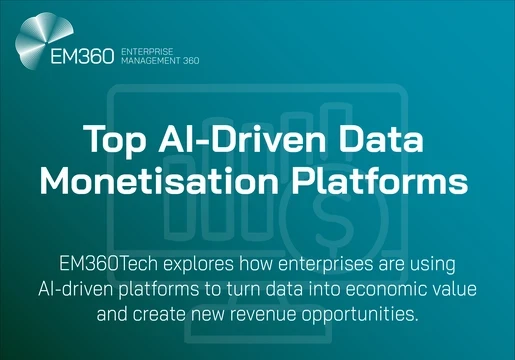The UK government has outlined a series of initiatives to reap the benefits of a data-driven economy. In a discussion paper released earlier this month, the government insisted that “data is the fuel of the digital economy.”
“The economic value of data” provides an assessment of the benefits and challenges intrinsic to data. According to the paper, data has the potential to enhance the UK's economy and productivity levels.
Back in June, the UK government announced that the country's digital firms were pioneering international trade growth by more than 20%. This discussion paper is yet another attempt at strengthening the UK's position as a world leader in data-driven innovation.

Unlocking the value of data
The OECD estimates that by 2020 the global volume of data will increase by up to 40 times over from its 2015 volume of 8 zettabytes (8 trillion gigabytes). Nevertheless, the government insists that data remains an under-exploited asset.
Emerging technologies like the Internet of Things (IoT) have created vast new data sets. The potential to transform big data into useful insights is therefore integral to "creating economic value.”
Data is incredibly powerful, and successful businesses harness its capabilities. From data stream processing, to data visualisation, encouraging a data culture is more important than ever.
Firms adopting data-driven decision-making can benefit from 5-6% higher output and productivity, according to the paper. In addition, the European Commission calculated that “even limited use of big data analytics solutions by the top 100 EU manufacturers could boost EU economic growth by an additional 1.9% by 2020.”
Challenges for the data economy
On the other hand, there are evidently challenges when it comes to creating a data-driven economy. The discussion paper sets out five challenges:
- Addressing ownership and control of data
- Maintaining protection of personal data
- Openness in public sector data
- Driving interoperability and standards
- Enabling safe, legal data sharing
In the current political climate, one of the key challenges facing the government is data ownership. While some are keen to alter data protection laws “more fundamentally,” the government said this would lead to “substantial technical and legal challenges in seeking to value individual contributions of data.”
Positioning the UK at the forefront
Investment in data is set to soar, a new report from consulting firm SNS Telecom & IT found that insurers may invest a massive $2.4 billion in big data. In response, the government has pledged to “put the UK at the forefront of the AI and data revolution.”
In addition, the government plans to spend £24 billion on advanced analytics by 2020. This is underpins the government's overall digital strategy, which commits to making the UK “the best place to start and grow a digital business.”
However, there are “still big challenges to confront and questions to answer” if the government is to “take advantage of the UK's unique strengths and capacity for data-driven innovation.” The paper concluded with the announcement that the government intends to produce a new "National Data Strategy."
This paper therefore marks the beginning of a wider set of discussions surrounding data. These conversations will inform the government's strategy as they seek to take advantage of the “significant opportunities and potential that data holds for economic growth and well-being in the UK.”







Comments ( 0 )